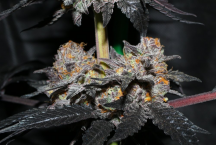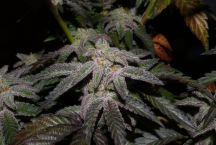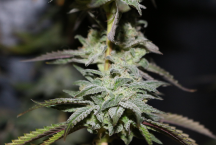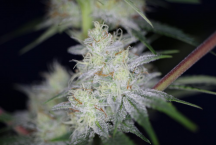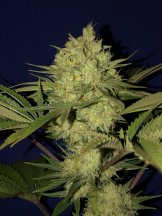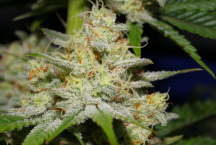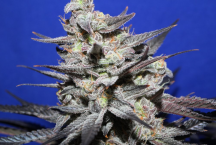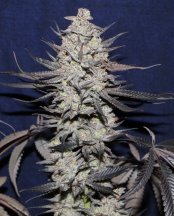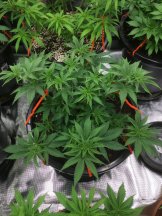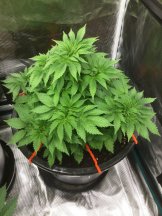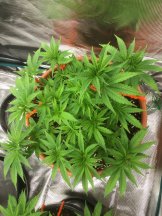Evergreengardener
Agronomist,
Organic gardening is.. Organic gardening is growing plants in harmony with nature by using biologically sound cultural practices to improve the soil, promote healthy plant development and encourage a fruitful harvest. By utilizing a diverse selection of natural and organic fertilizers, as well as minerals and soil amendments, we can support this process. Feeding the soil is the foundation of organic gardening. Conventional gardening practices treat the soil as a structural medium and focus only on feeding the plant directly with synthetic fertilizers. This may diminish the soil’s natural capacity for supporting plant health because it ignores, and may harm, the essential living components of soil that plants rely on. Organic gardening emphasizes continually strengthening the complex soil environment. That promotes healthy, vibrant plant growth, and allows the plants to grow at a natural pace and produce the best tasting, most nutritious foods for you and your family. For plants to grow, they need air, water, food and a porous medium for root expansion. The food is provided by minerals and organic matter in the soil, and can be supplemented with the addition of amendments, composts, manures, minerals, natural fertilizers or by companion plants such as legumes. Besides providing plant nutrients, organic matter provides additional functions. It adds structure to sandy soils and helps loosen clay. It also retains moisture, improves aeration and feeds the beneficial inhabitants, such as bacteria and fungi present in the soil. Organic matter originates from once living sources such as plants and their root systems, mulch and woody materials, soil organisms and plant and animal waste in the form of compost. This process of renewal and decay eventually transforms organic matter into humus, a highly complex substance that is often described as the “life-force” of a healthy soil.
Composting: Mature compost is also is thought by some to be the most important factor in the enrichment of soils in both a physical and chemical sense. Besides increasing fertility compost helps the soil retain moisture and encourages the formation of good soil structure. Chemically, it makes nutrients more available to plants and feeds the soil population of micro-organisms and other creatures, thus maintaining high levels of healthy soil life. Compost is also an ideal way to recycle what would otherwise be considered home and yard waste. Backyard composting transforms waste into a valuable resource, and it reduces the amount of materials heading towards landfills.
Organic Fertilizers derived from plant, animal or mineral resources, and combined with organic matter, are ideal for enhancing soil fertility and stimulating plant growth in a sustainable and environmentally friendly way. Organic fertilizers add nutrients to the soil for uptake by plants and for use by the myriad microorganisms that inhabit healthy, productive soil.
UNDERSTANDING THE NPK RATIO Fertilizers are labeled with numbers that represent the percentage of the three primary macro-nutrients – nitrogen (N), phosphorus (P) and potassium (K) – that are available in the fertilizer. These elements are listed as the NPK ratio. Each nutrient plays specific and complementary roles. Generally, nitrogen energizes vegetative growth, phosphorus produces expansive roots, flowers, fruits and viable seeds, while potassium promotes sturdy stems, plus resistance to disease and temperature stress. Most fertilizers also contain varying amounts of the secondary macro-nutrients – calcium, sulfur and magnesium – along with trace elements or micro-nutrients that also play essential roles in plant nutrition. Since organics break down at a slower rate, they release nutrients slowly with greater effectiveness than conventional fertilizer, reducing the need to reapply fertilizers as often in order to maintain soil fertility. This minimizes the possibility of “burning” plants with concentrated chemical supplies of nutrients. By encouraging soil microbial life to flourish, they improve overall soil health rather than degrade it. Since organic fertilizers last longer and release their nutrients slowly, their long-term NPK amounts will be greater and more beneficial than what is shown on the label.
Composting: Mature compost is also is thought by some to be the most important factor in the enrichment of soils in both a physical and chemical sense. Besides increasing fertility compost helps the soil retain moisture and encourages the formation of good soil structure. Chemically, it makes nutrients more available to plants and feeds the soil population of micro-organisms and other creatures, thus maintaining high levels of healthy soil life. Compost is also an ideal way to recycle what would otherwise be considered home and yard waste. Backyard composting transforms waste into a valuable resource, and it reduces the amount of materials heading towards landfills.
Organic Fertilizers derived from plant, animal or mineral resources, and combined with organic matter, are ideal for enhancing soil fertility and stimulating plant growth in a sustainable and environmentally friendly way. Organic fertilizers add nutrients to the soil for uptake by plants and for use by the myriad microorganisms that inhabit healthy, productive soil.
UNDERSTANDING THE NPK RATIO Fertilizers are labeled with numbers that represent the percentage of the three primary macro-nutrients – nitrogen (N), phosphorus (P) and potassium (K) – that are available in the fertilizer. These elements are listed as the NPK ratio. Each nutrient plays specific and complementary roles. Generally, nitrogen energizes vegetative growth, phosphorus produces expansive roots, flowers, fruits and viable seeds, while potassium promotes sturdy stems, plus resistance to disease and temperature stress. Most fertilizers also contain varying amounts of the secondary macro-nutrients – calcium, sulfur and magnesium – along with trace elements or micro-nutrients that also play essential roles in plant nutrition. Since organics break down at a slower rate, they release nutrients slowly with greater effectiveness than conventional fertilizer, reducing the need to reapply fertilizers as often in order to maintain soil fertility. This minimizes the possibility of “burning” plants with concentrated chemical supplies of nutrients. By encouraging soil microbial life to flourish, they improve overall soil health rather than degrade it. Since organic fertilizers last longer and release their nutrients slowly, their long-term NPK amounts will be greater and more beneficial than what is shown on the label.

